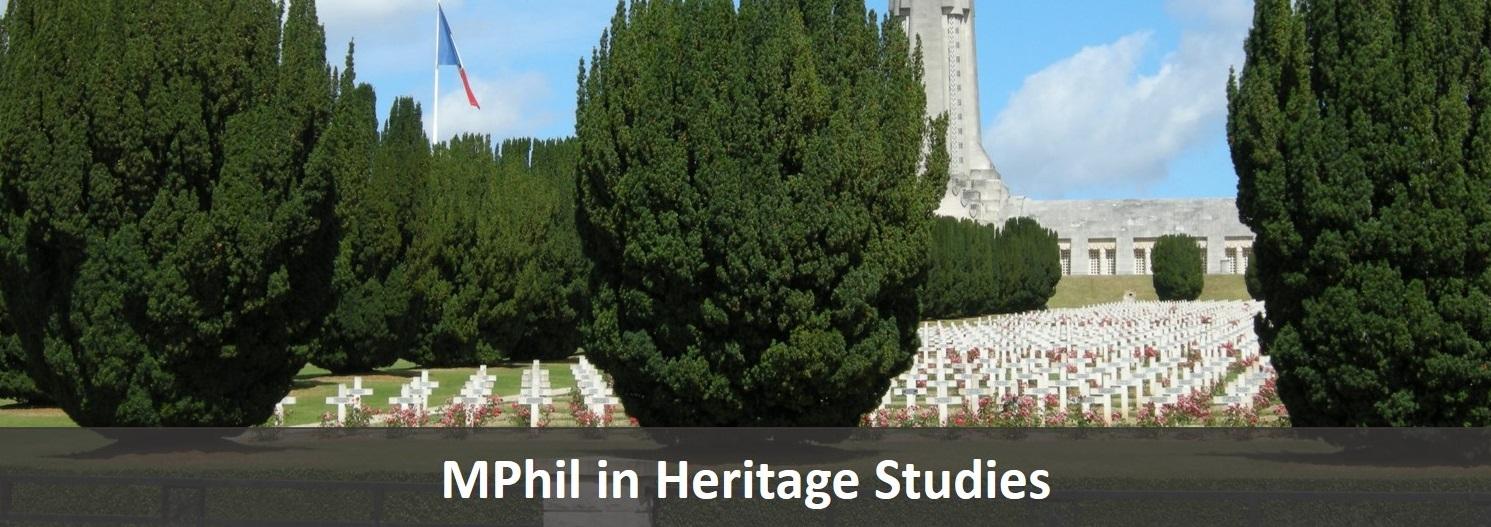
Course Coordinator: Dr Andreas Pantazatos
Other staff teaching on this course:
Dr Dacia Viejo Rose, Dr Liliana Janik, Dr Gilly Carr
The course
The MPhil in Heritage Studies is an exciting and intensive 11-month course offering students a unique interdisciplinary Masters programme that provides outstanding education in the broad field of Heritage Studies. This course, taught within the Department of Archaeology, prepares graduates to either undertake further research in the field of heritage or enter a range of professions within the heritage industry and beyond.
The new MPhil in Heritage Studies is a specialised free-standing Masters programme, which replaces the Archaeological Heritage and Museums option previously offered within the MPhil in Archaeology.
To apply for the MPhil in Heritage Studies visiting the Graduate Admissions website
The structure
Student enrolled on the MPhil in Heritage Studies select three modules from a list of those available each year. At least two of these modules will be from a list of two-term long heritage modules and usually include ‘The Socio-politics of the Past’, ‘Heritage Management’ and a ‘Special Topics in Heritage’. The latter incorporating themes such as ‘heritage and conflict’, ‘heritage and climate change’, ‘heritage and migration’ and ‘intangible heritage’ into a papers that changes annually to reflect the latest research and developments in this dynamic discipline. In addition to taking a research skills module and completing a dissertation, students are also able to select one or two modules from a list of two- and one-term long modules available within the Department of Archaeology. This allows students to tailor their course to include advanced study of a particular period or geographic region.
Themes of the course
Some of the key themes covered in the course in most years typically include:
- Heritage and Identity
- The role of ‘politics’ in heritage
- The role of ‘value’ in heritage studies
- Cultural heritage and conflict
- The relationship between natural and cultural heritage
- Contemporary challenges in heritage management
- The role of international bodies in heritage management
- Heritage and public engagement
- Cultural heritage and the law
- Cultural heritage and development ethics
Heritage modules may also include fieldtrips and site visits as part of the syllabus which will either be free or heavily subsidized by the Department.
Teaching and Assessment
Modules are assessed through coursework and written examinations throughout the year. Coursework elements may also include book reviews, grant proposals or reports, in addition to critical essays on topics covered in the modules. Examinations, if required for the modules selected, are held in late May/early June each year. Student are required to produce a dissertation in discussion with their supervisor. To see examples of previous MPhil dissertations in Heritage Studies visit the MPhil Dissertations pages in the publications section of our website.
To Apply
To apply for the MPhil in Heritage Studies visiting the Graduate Admissions website:
www.graduate.study.cam.ac.uk/how-do-i-apply
Further Information
For further information about academic and language requirements and fees and funding opportunities visit the Graduate Admissions website and search for Heritage Studies in the Course Directory:
www.graduate.study.cam.ac.uk/courses/directory/hsarmphst
For more details regarding the content of the course for coming year or to arrange to visit the Department of Archaeology please contact:
graduate-secretary@arch.cam.ac.uk
